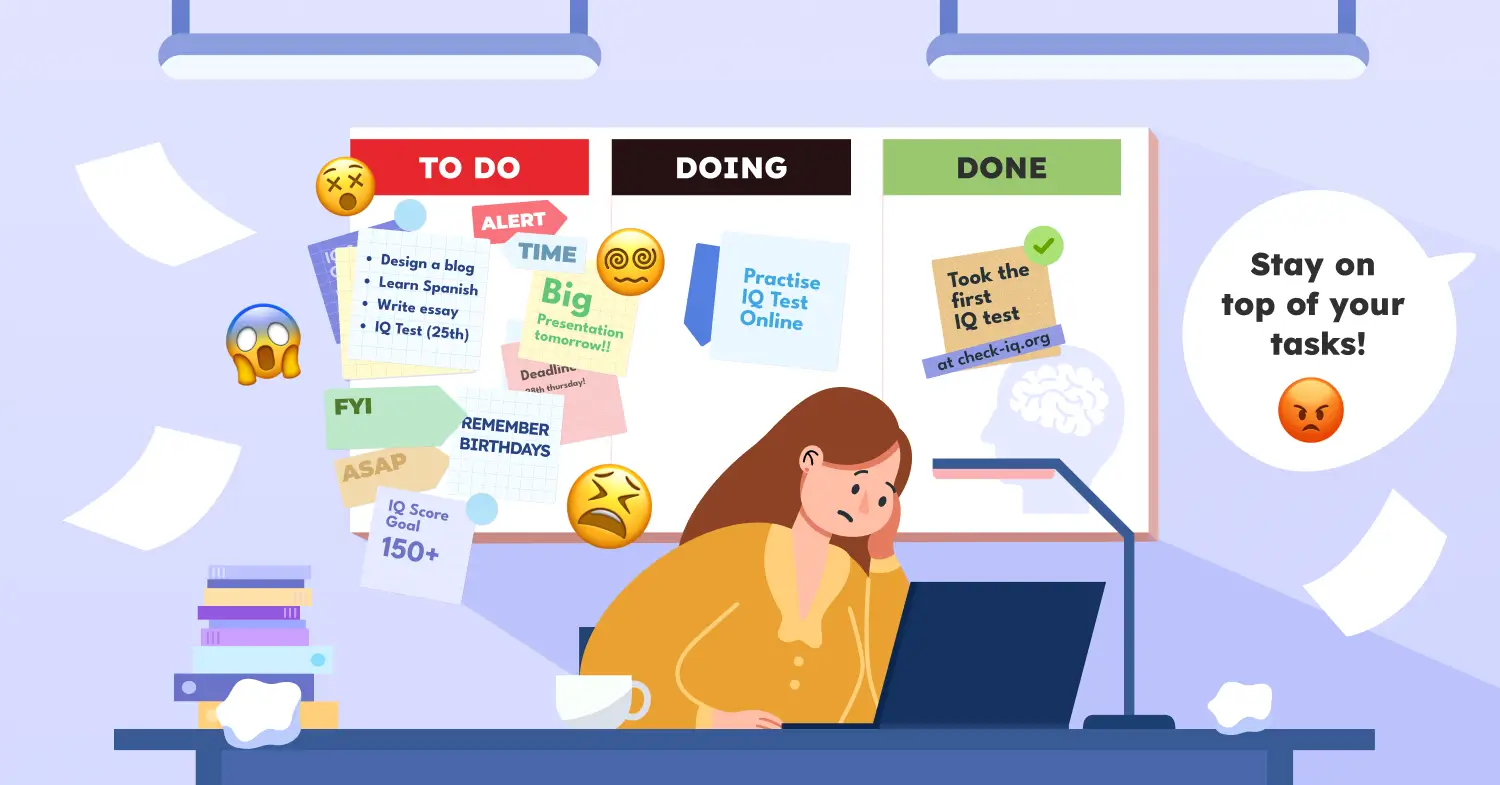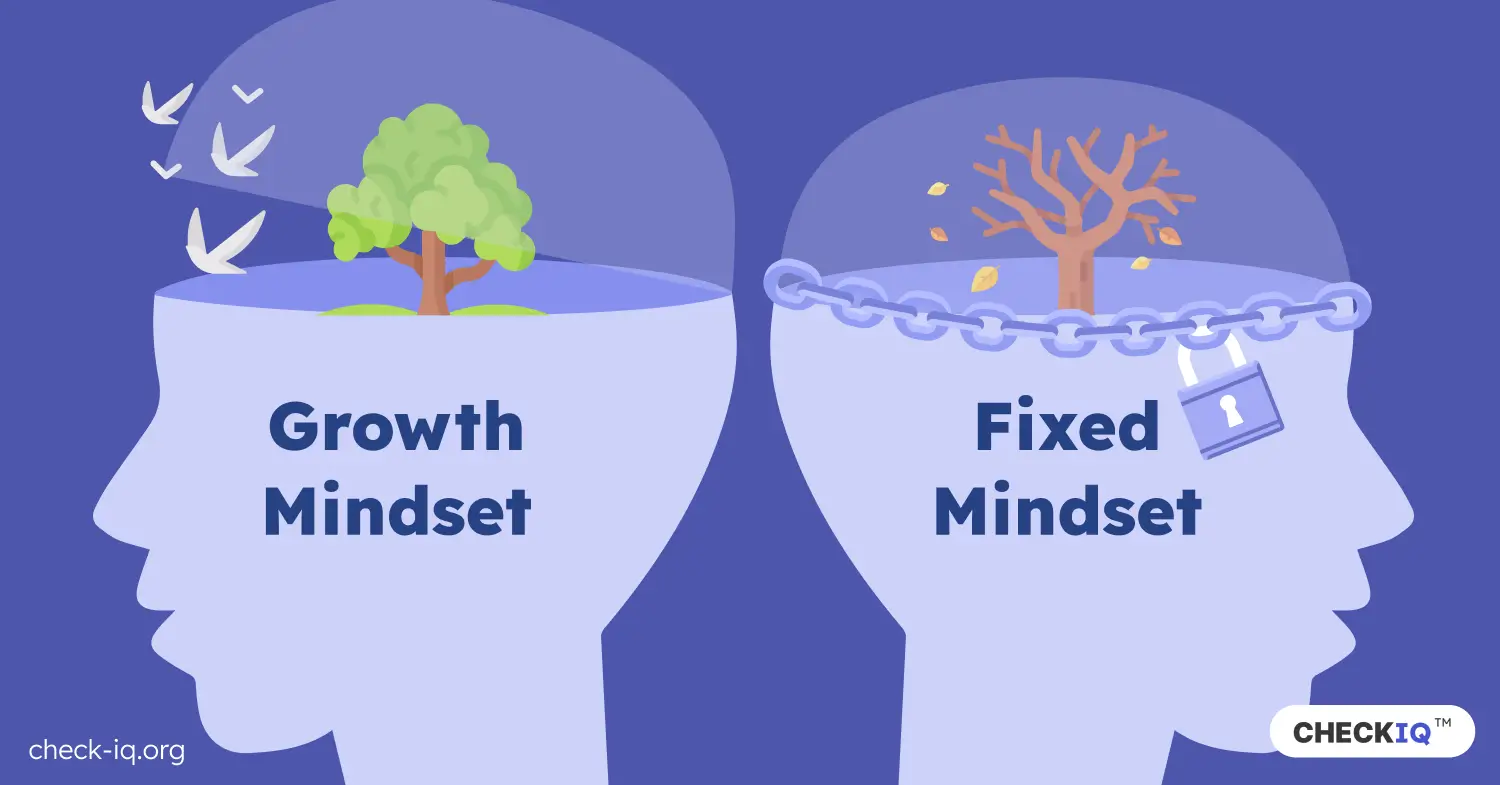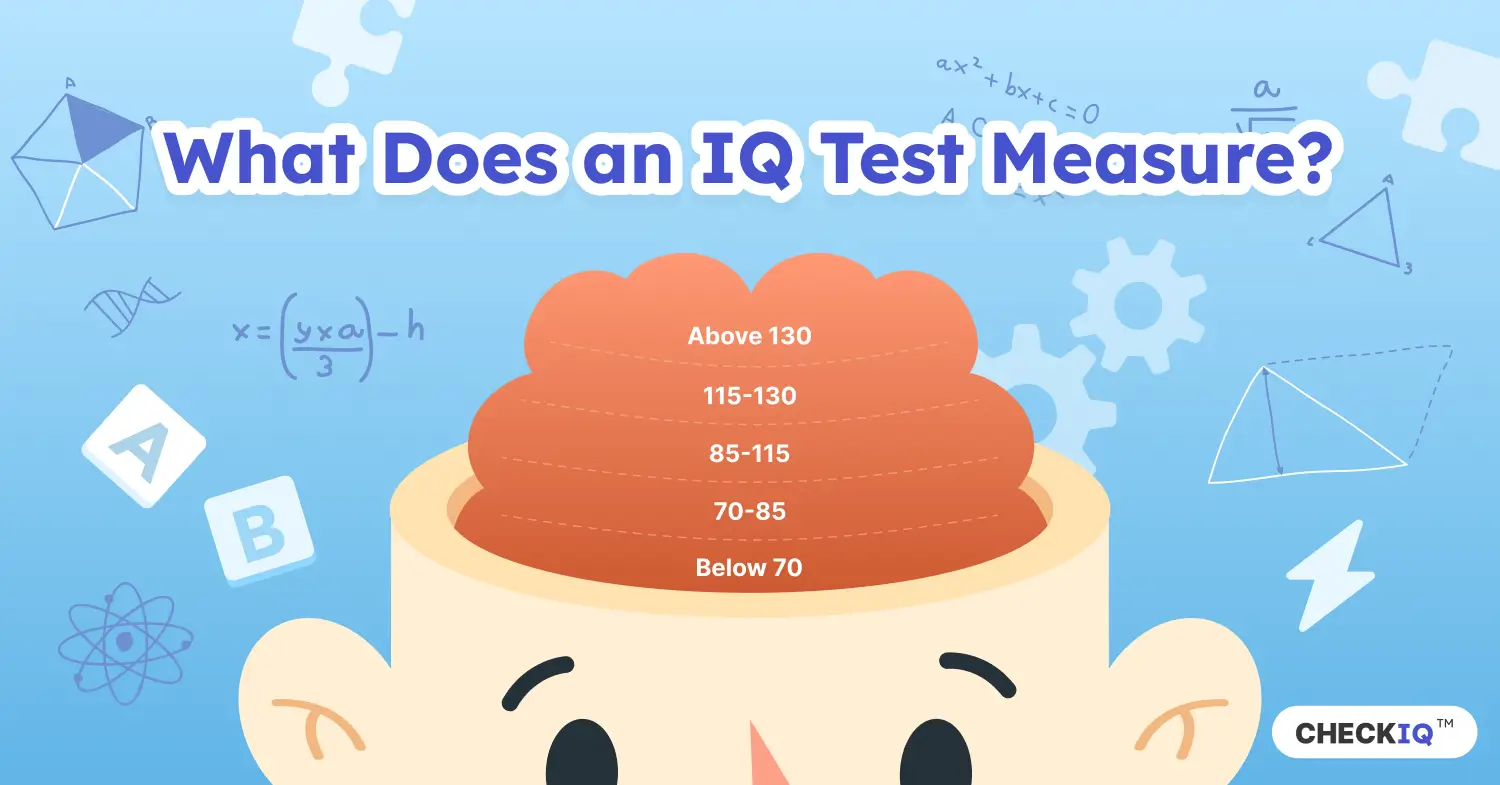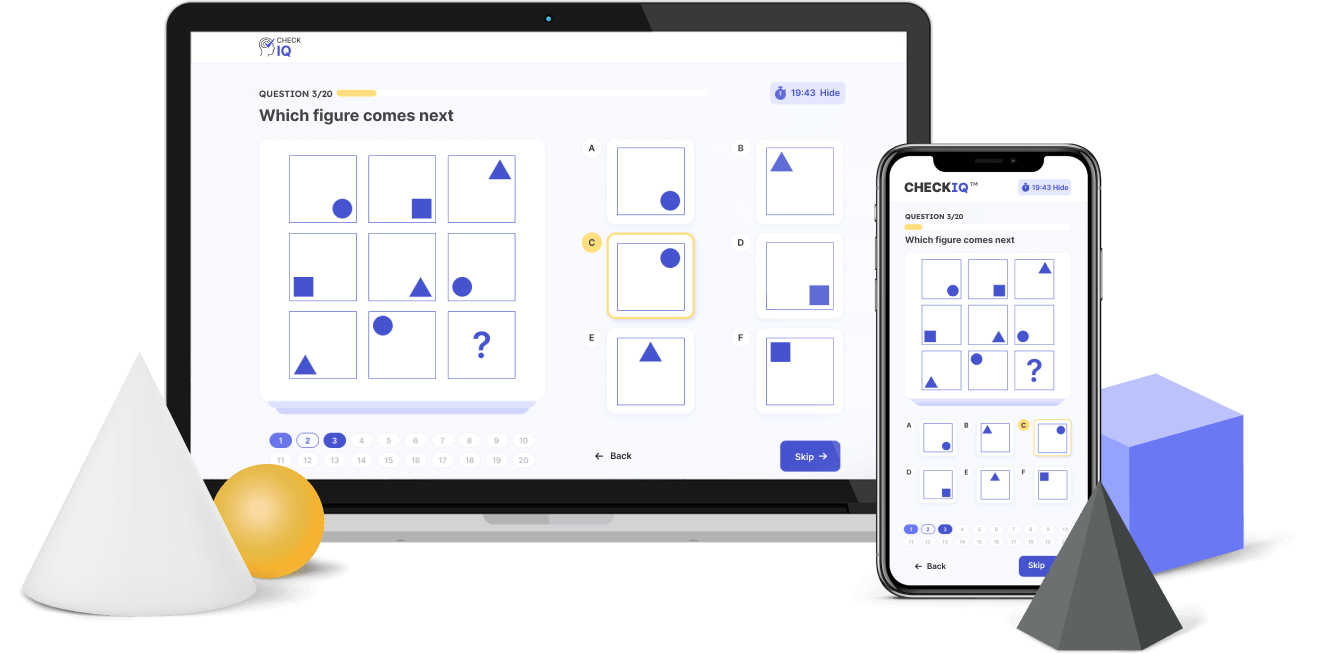Memory matters. It's the fabric that stitches the past and present together, enabling us to learn, plan, and engage with the world around us.
But does memory dictate intelligence, or are they not linked in any way? Let’s see what research says:
1. The Relationship Between Memory and IQ
1.1 Understanding memory and intelligence
The common assumption is that a great memory is synonymous with high intelligence. However, the discussion is much more complex.
Firstly, there are different types of intelligence. IQ tests measure your reasoning ability, abstract thinking, and problem-solving skills. At the same time, memory is also divided into several categories as we’ll see in the next paragraph.
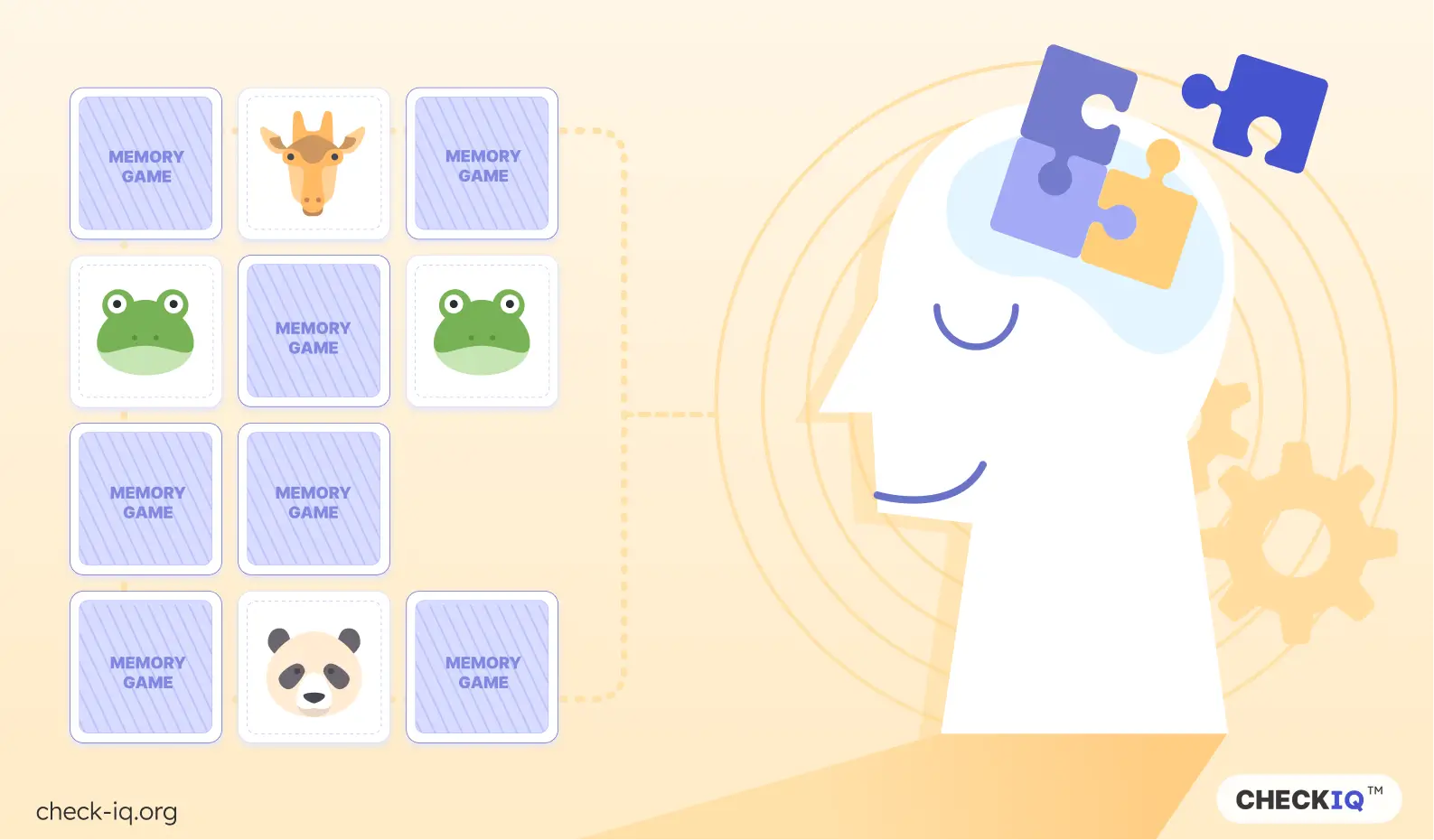
1.2 The different types of memory
To fully understand how memory contributes to intelligence, it's important to distinguish between:
- Sensory Memory: This is your immediate, automatic recording of sensory information, and it refers to all five senses (sight, smell, taste, hearing, and touch). Imagine glancing at a flash of lightning or hearing a quick clap of thunder; that's sensory memory at work. It captures these brief moments as they happen, but the memory fades almost instantly, usually lasting milliseconds according to research.
- Short-Term Memory (STM): STM temporarily keeps pieces of information, such as a phone number, and retains them for up to 30 seconds. STM is crucial for performing immediate tasks, and training can extend its duration. It’s also known as “immediate attention span” as noted by psychologists Jane Martin and Michelle Gorenstein.
- Long-Term Memory (LTM): LTM is your mind's extensive storage system, capturing everything from detailed autobiographical events to learned skills. It includes explicit memories, such as your birthday party or graduation, and implicit memories, which refer to performing actions, such as riding a bike or playing the drums.
STM is highly similar to working memory, which is essential in performing cognitive tasks, such as mental calculations or following complex instructions. Let’s see how it works:
A reliable 100% adaptive online IQ Test. Get your IQ score immediately.
Start My IQ Test
1.3 What is working memory?
Working memory is your ability to “think on your feet”. It is essential for problem-solving, planning, multitasking, and reasoning as highlighted in research by Nelson Cowan of the University of Missouri.
You can picture it as the active workbench of your mind, where information from sensory and short-term memory is manipulated, used to make decisions, or stored in long-term memory.
This type of memory is often overlooked when it comes to its relation to intelligence. However, it has a critical role in performing tasks that involve quick thinking, complex reasoning, and in adaptation to new information.
STM helps you remember information for about 30 seconds. Working memory retains this information slightly longer and it helps you to use it, especially when performing other tasks. For instance, recalling a name requires STM, whereas recalling a name while you’re washing the dishes requires working memory.
Even so, studies, such as the one conducted by Dutch researchers in neuropsychology, show that the two overlap in many cases, so you may notice some people using these terms as synonyms.
1.4 So, is a good memory a sign of high IQ?
Having a good memory, particularly a good working memory, is closely linked to intelligence as recent research by Swiss researchers shows. However, it’s not necessarily a sign of high IQ.
Research demonstrates that people can possess excellent memory capabilities, but average IQs. Conversely, people with high IQs may struggle with specific types of memory tasks.
For example, a person might excel in abstract thinking and complex reasoning, yet have difficulty in remembering names or details. This highlights that, while memory plays a critical role in cognitive processes involved in IQ tests, high intelligence involves a broader spectrum of cognitive functions.
Furthermore, studies suggest that training memory can improve performance on tasks that require intelligence, indicating that, while related, the skills can be independently developed.
1.5 Can memory training improve IQ test score?
Research from the University of Sydney and the University of NSW shows that training your memory through creative problem-solving can really boost how smart you are, and in turn increase your IQ.
Participants who trained their creative problem-solving skills saw their IQ scores jump by 10 to 15 points, with significant changes particularly among those who had lower cognitive abilities at the beginning of the study.
This means that, with the right kind of “brain exercises”, focusing on both fluid intelligence (like problem-solving and quick-thinking) and crystallized intelligence (like the knowledge you've already got), you can become smarter. This supports the idea that you can actually study for an IQ test.
Our brains seem to be more flexible than we might have thought initially.
1.6 Is it possible to have a high IQ but a bad memory?
Interestingly, people who have a high intelligence might face challenges with working memory, such as difficulty remembering multiple pieces of information while performing a task.
This does not invalidate their intelligence, but rather it highlights the complexity of cognitive abilities, where working memory is just one piece of the puzzle.
Research by the Department of Psychology at Florida Atlantic University supports these nuances. It was shown that children with high IQs can more effectively use and benefit from memory strategies following training, compared to their lower IQ peers.
This finding indicates that, while memory and intelligence are at times interconnected, their relationship is not linear - in many situations, there may be other factors that impact them separately.
2. How Your Memory Impacts Your IQ Test Score
2.1 The most relevant type of memory for IQ tests
Imagine an IQ test as a challenging obstacle course for your brain, with each obstacle crafted to test a unique cognitive skill. It has several sections, each evaluating different abilities, including quantitative skills, logical reasoning, pattern recognition, and sometimes verbal comprehension.
The most relevant type of memory for an IQ test is working memory. Working memory is your brain's live-streaming service, processing and using information in real-time. Its role in IQ tests is critical; it is the engine that powers your capacity to manipulate and apply information on the fly.
To score well on an IQ test, a robust working memory is your best ally, aiding in tackling complex problems that require you to recall and use various pieces of information at once.
2.2 Combining fluid intelligence with working memory
Fluid intelligence involves learning, logical thinking, and solving new problems without pre-existing knowledge on the topic. This form of intelligence is crucial in spontaneous and unpredictable cases, where you can’t rely on learned information alone.
The connection between fluid intelligence and working memory becomes evident when considering their application in real-life scenarios, as highlighted by research from the Rotman Research Institute.
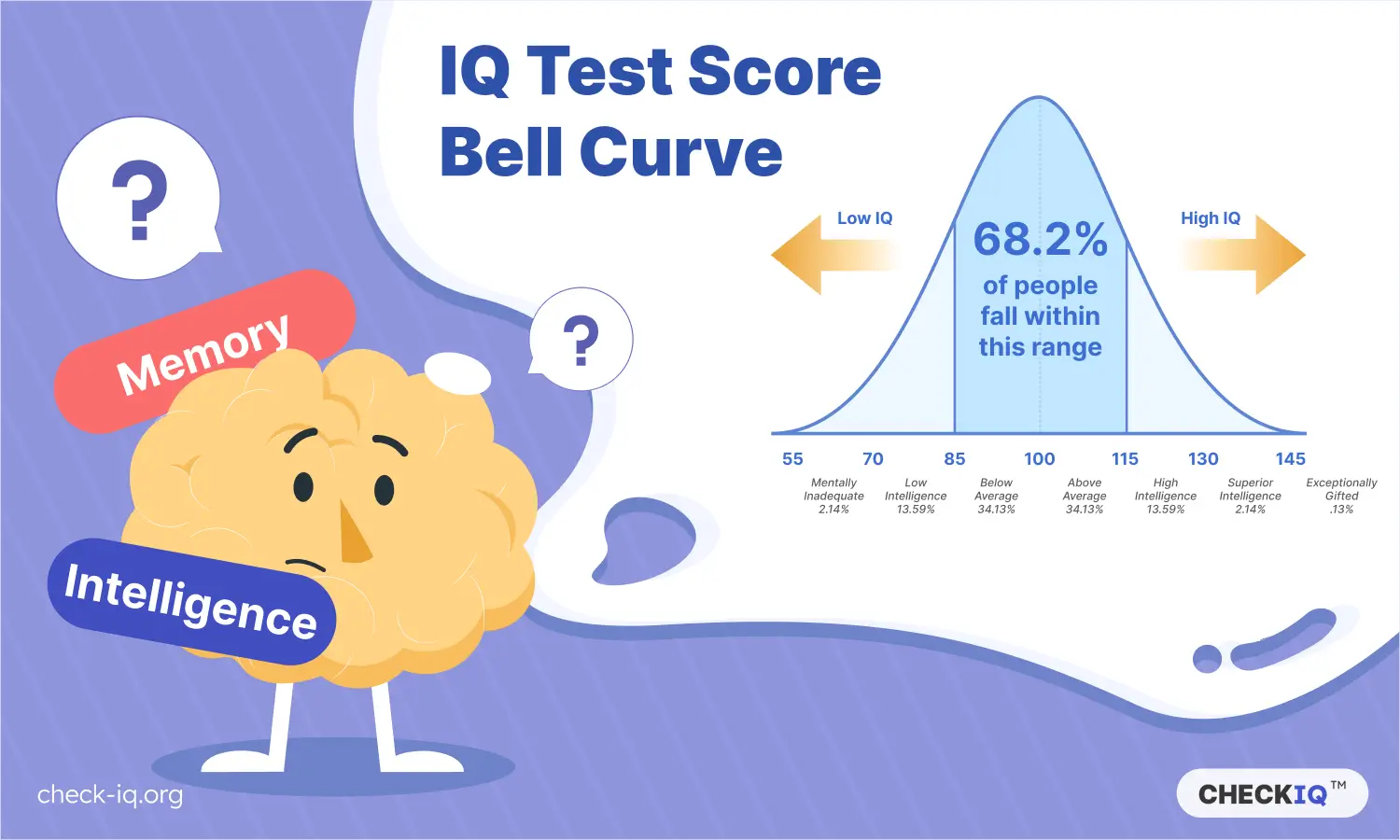
This study examines how individuals employ memory aids in everyday situations, noting a significant observation: people with higher verbal IQs, often assessed during IQ tests, tend to use these aids more effectively. This effectiveness is particularly marked under stress or when these individuals notice a decline in their memory performance.
The findings suggest that a high verbal IQ, indicative of strong fluid intelligence, enhances the ability to strategically use memory aids. This helps optimize cognitive functions under various conditions, such as unexpected situations involving fast decision-making.
The synergy between fluid intelligence and working memory often dictates how well we do on IQ tests and in managing day-to-day challenges.
3. Tips to Boost Your Memory
Have you ever thought about how enhancing your memory could enrich your daily life and possibly even heighten your IQ score?
Let's look at ways to fine-tune your cognitive abilities, with a focus on memory and overall intelligence.
3.1 Memory boosting strategies
Studies suggest that organizing information in meaningful ways can drastically improve recollection. One effective method for achieving this is the technique known as "chunking." Chunking involves breaking down complex information into smaller, more manageable units, making it easier to remember them.
For instance, imagine you need to pick up various items from the grocery store. Instead of trying to remember each item, you can chunk them into categories based on the store layout or the type of goods. Here's how you might organize your shopping list:
- Produce: Group all fruits and vegetables you need, like apples, oranges, carrots, and lettuce.
- Dairy: Include items like milk, cheese, and yogurt.
- Pantry: Cluster pantry staples such as pasta, rice, canned tomatoes, and olive oil.
- Bakery: Remember to pick up bread, bagels, and any other baked goods.
- Frozen Foods: Think about all the items you need from the frozen section, such as ice cream, frozen vegetables, and pizza.
In short, instead of remembering the entire list, you can efficiently navigate the store and ensure you don't forget any items by visualizing these categories as different sections or aisles in your memory.
3.2 Memory boosting lifestyle
Your lifestyle plays a significant role in your cognitive health. Harvard Medical School emphasizes the importance of a holistic approach to improve brain functions, including diet, exercise, and mental activities.
Just as athletes train their bodies, individuals can train their brains with mental exercises and social interactions that sharpen their memory and potentially contribute to academic success, whether for children in school or adults in continuing education.
Let’s check them one by one:
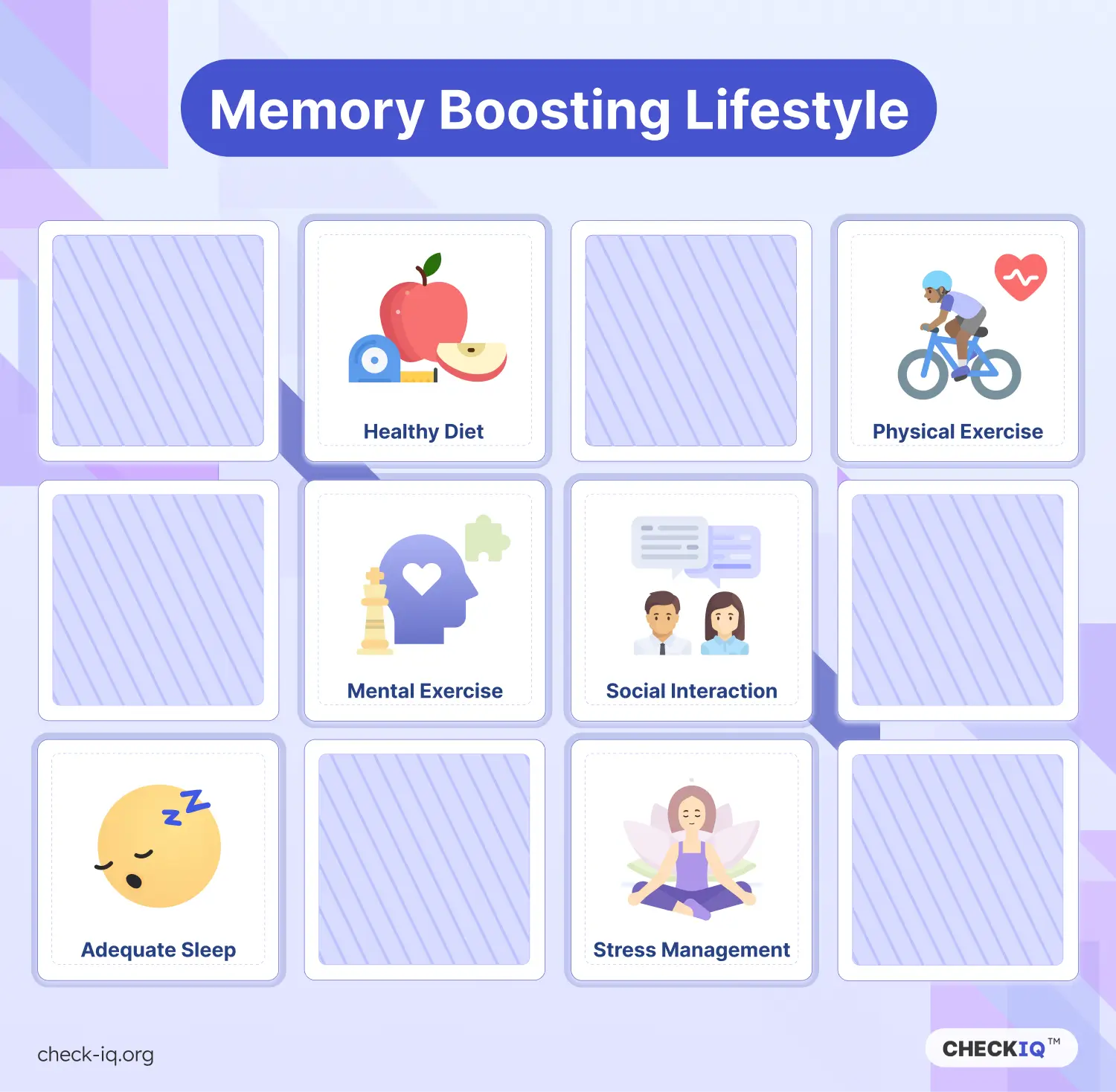
- Diet: Integrating brain-boosting foods into your diet can enhance mental clarity and memory. Foods rich in omega-3 fatty acids like fish, walnuts, and flaxseeds, antioxidants found in berries, or vitamins in leafy greens are particularly beneficial. These nutrients help protect your brain cells from damage and improve cognitive functions.
- Physical Exercise: Regular physical activity increases blood flow to the brain, which can help maintain and even enhance cognitive functions. Activities like brisk walking, swimming, or yoga improve cardiovascular health, which in turn supports brain health. Even simple routines can lead to substantial benefits over time.
- Mental Exercises: Engaging in brain games, puzzles, or new learning activities stimulates the brain and helps strengthen memory. Activities that challenge your brain can foster new brain cell connections. Try learning a new language, musical instrument, or even a new hobby like painting or chess. These exercises are similar to those used when studying for an IQ test.
- Social Interaction: Maintaining social connections isn't just good for your emotional health; it also benefits your brain. Conversations and social interactions engage multiple cognitive processes, including attention, memory, and language skills, which can help keep your mind sharp.
- Adequate Sleep: Sleep is critical for memory consolidation—the process by which short-term memories are strengthened and transformed into long-lasting ones. Ensuring you get enough restful sleep is essential for optimal cognitive functioning and memory performance.
- Stress Management: Just like your mindset can affect your intelligence, high stress can impair cognitive functions and memory. Practices like meditation, mindfulness, or simply engaging in activities you enjoy can reduce stress and improve your overall mental health.
3.3 Mnemonics: An effective memory boosting trick
Ever used a mnemonic? These are practical memory techniques that involve creating patterns or making associations to remember something. For instance, creating a rhyme about a theory to recall the theory later on.
By doing this, you can transform abstract concepts into vivid memories. Coupled with staying organized and using aids like calendars or lists, these exercises help cement new information in your long-term memory.
Let’s say you need to remember the order of the planets in our solar system from the sun outward. You can use a mnemonic device, which is a simple phrase where the first letter of each word corresponds to the first letter of each planet.
The well-known mnemonic for the planets is: "My Very Educated Mother Just Served Us Nachos". Each word's initial represents Mercury, Venus, Earth, Mars, Jupiter, Saturn, Uranus, and Neptune.
4. Frequently Asked Questions About Memory and IQ
4.1 What’s the correlation between IQ and memory?
Working memory, which involves holding and manipulating information over short periods, strongly correlates with IQ. Even so, research highlights that while working memory is crucial for performing tasks on IQ tests, such as reasoning and problem-solving, it's not the sole determinant of IQ.
Studies, like those by Conway, Kane, and Engle, have shown that working memory is closely linked to fluid intelligence, a key component of IQ tests.
However, IQ also encompasses broader cognitive abilities including creativity and abstract reasoning, which means intelligence involves a complex integration of multiple cognitive skills.
4.2 Do I have a low IQ if my memory is bad?
Does having a less than stellar memory automatically mean you have a lower IQ? Not at all. Many people experience memory problems, often unrelated to their intellectual capacity.
For instance, students might struggle with retaining information due to stress or lack of sleep, neither of which are indicative of their overall intelligence. Factors such as attention span, which for many, has dipped slightly below the average attention span of a goldfish, can influence memory without necessarily reflecting one's IQ.
4.3 Is working memory a predictor of success?
It can be, especially in environments like school or the workplace, where the ability to remember and manipulate information is critical.
However, Yale University School of Medicine research has also shown that even brilliant individuals with ADHD can struggle with executive functions typically associated with working memory. This suggests that while working memory is important, it's not the only factor at play in predicting success in academics or life.

